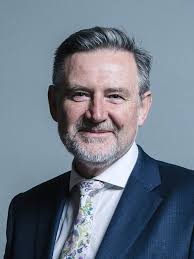The speech made by Barry Gardiner, the Labour MP for Brent North, in the House of Commons on 21 October 2020.
This debate is about priorities and it is about shame—the shame that, in the fifth richest country in the world, 30% of our children, which is 4.2 million of them, are living in poverty by the Government’s official statistics. Before the summer, Marcus Rashford publicly shamed the Government and won free school meals over the holidays. He spoke from the heart about his experience as a child when he was dependent on food banks.
The Prime Minister now says that it is not the role of schools to provide food during the holidays. Child hunger may not be a priority for him, but it is a priority for the headteachers of my schools in Brent who have emailed me in the past 24 hours with their heartfelt experiences. Perhaps they will shame the Prime Minister once again.
Rebecca Curtis, principal of ARK Elvin Academy, said:
“In Lockdown we had children calling the school explaining they were hungry and asking what we could do—as soon as we were able to issue the FSM vouchers we were flooded with thanks from our children and their parents. The situation with unemployment in Brent is clearly so much worse now so we are really concerned about how we can support our pupils through the half term and the Christmas holidays”.
James Simmons, the head of Oliver Goldsmith Primary School, observed:
“Families with multiple children were able to purchase food in bigger quantities to take advantage of offers. With stress for families trying to feed children greatly reduced, they described the access to FSM as a lifeline.”
Mrs Mistry at Sudbury Primary School said that she
“strongly believes that FSM should be provided,”
but cautioned that,
“The government needs to implement a scheme that is easily manageable by schools”.
Karen Giles, the head at Barham Primary School, made the point that,
“Many families have had their income cut by two thirds or more and many children are going hungry. Schools need Free School Meals to be directly funded and the criteria for eligibility should be less stringent.”
Mr Farrington, the head of the Village School, warned:
“There is very limited provision for pupils with disabilities over the holidays and we fear many won’t receive adequate food and support. We are also aware that parents, carers and families are putting themselves in more debt and that providing for their children has had a large impact on the mental health of our families.”
Finally, Raphael Moss, the head of Elsley Primary School, wrote that the:
“government paying for FSM during holidays should be an absolute minimum. What is really needed is to widen the eligibility for children whose families are in receipt of Universal Credit as Marcus Rashford is campaigning for. At Elsley we had to set up a food bank to support some of our families. I cannot believe that as a Head teacher in London in 2020 I am overseeing a food bank to ensure that our children don’t go hungry. It is truly unbelievable.”
Well, it is truly unbelievable, but the Government have the opportunity to put it right.
It is not just about extending the voucher scheme, however. Today, five senior children’s charities published an analysis showing that even before coronavirus, local authorities were struggling to fund the need for children’s services. They say:
“Those in the most deprived communities have suffered the greatest reductions in spending power. Funding for services for the 20% most deprived Local Authorities has fallen more than twice as fast as for the least”.
My borough of Brent has lost £174 million since 2010.
A recent National Audit Office report on bounce back loans found that, to support business, the Government underwrote more than £36 billion of loans in the full knowledge and acceptance that between 30% and 60% of that would have to be written off as unrepayable or even fraudulent. That is between £11 billion and £20 billion of public money wasted, yet the Government baulk at spending another £10 million—million—on our children. This is about priorities and it is about shame. If those are the Minister’s priorities, he should be ashamed.
